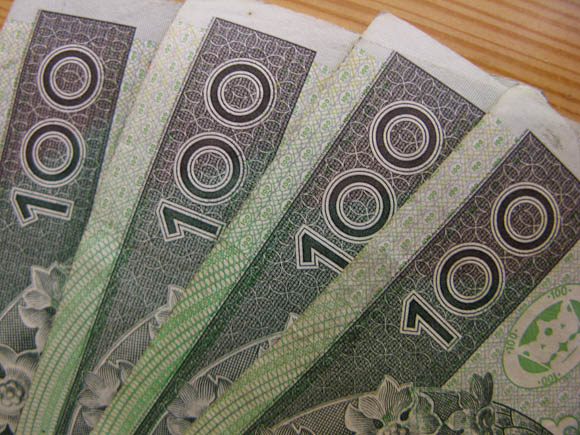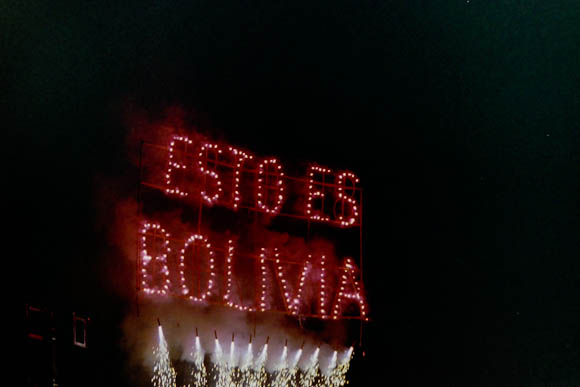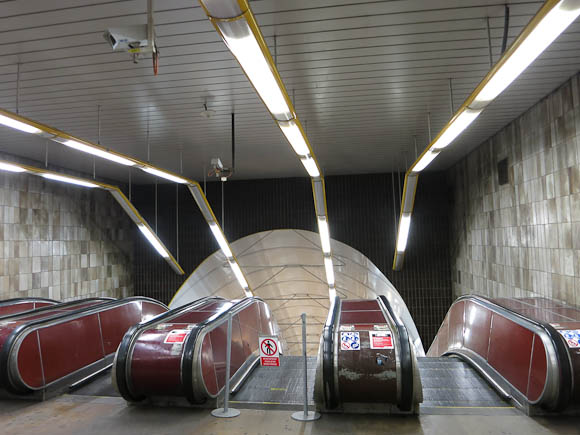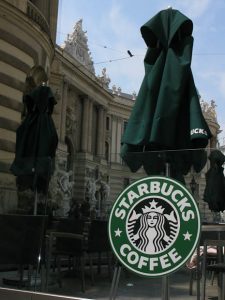I want to talk to you about a problem that afflicts pretty much everyone in the world with a bank account, and even plenty without. It’s an extremely grave problem, and definitely not just a minor annoyance that I’m blowing out of all proportion.
I want to talk to you about ATMs, and the notes they give you.
The Problem
It’s a common thing the world over, and especially problematic for travellers. You go to a cash machine hoping for a small wad of spendable notes, and instead it gives you one massive note, along with a suppressed chortle.
It has to be the single biggest annoyance with ATMs when you’re travelling, at least beyond the on-screen message ‘Out of service, lol’
Stay in a country long enough and you even find out which banks are the worst culprits, and which ones you’d hug if they weren’t so firmly recessed into the wall.
If you took money out and then just made clothes out of it or something, this would be fine. But the idea is to exchange the money for goods and services. And here’s the real stinger… the goods and services are often significantly lower in value than one of your notes!
Why do banks do this?
I’m guessing that banks do this because if they fill it with small denomination notes, they’re going to have to refill it more often. I think that’s why. Either that or they’re inherently evil.
Also, some people actively require large denominations notes. Like the late business magnate Nubar Gulbenkien, who used to say of his prized hackney carriage:
“It can turn on a sixpence – whatever that is.”
An age-old issue
I don’t remember life before the cash machine. It seems like it’s always been there, which makes sense given it was introduced the British high street in the 1970s.
Here’s of my favourite adverts from the 1980s.
“I’m just going to get some cash, okay? Then I’ll give you a ten pound note for a newspaper that costs fifteen pence. And you can tell me to fuck off under your breath whilst I grin thinking we’re big pals and everything.”
The point of the advert is that he could even get money on a Sunday.
But the advert is nonsense – it tries to suggest that he’s really happy with the big wedge of unspendables that the machine has stranded him with. So happy in fact, that he even gives it a friendly nod.
I’m probably just envious because I’ve wanted this man’s lifestyle since approximately 1988, even if I am slightly concerned by the balcony. And the hair. And the pouting.
The people who sell things
Anyway, at this point it would be fine if the shopkeepers or vendors had change. But they often don’t.
So now we have an impasse.
I always think “Hey, I’ve got an idea, shopkeepers and vendors – just get some change from the bank! And hey, maybe keep it in the till, you know, where the change gets kept!”
But it’s not really their fault. The amount of extra float you’d have to carry in a till to deal with every idiot that might come in to buy a stick of gum with an inappropriately large bill would be ridiculous. Plus a till stacked full of cash just makes you a target. If only for me, when I need some change.
Managing the change in the till of a small business is like building a delicate little woodland nest out of twigs and found objects. The person who gives you a twenty pound note whilst paying for, say, a pencil, is a leaden-footed dolt clomping about all over it in their size tens, their cheery smile an indicator of nothing but wilful idiocy.
This is why, when you present a shopkeeper with the exact money – or just a partial amount that helps in some way (“Have you got the 27p?”) – they shower you with effusive joy, blurting out “Brilliant!”, or some other term you wouldn’t normally associate with the purchase of margarine.
And if you’re a street vendor, carrying excessive change is even less feasible, for a variety of obvious reasons.
It gets worse when you travel
Okay, so life is pretty great if you’re able to just swan about, taking photos of yourself and your forearm in front of cool sights – let’s not kid ourselves.
But when you’re on the road small things that you take for granted back home become inordinately more difficult. Indeed it’s amazing how little issues, such as the denominations of bills, can have such a disproportionate effect on one’s mood.
For a start, even using the ATM itself is stressful, as most machines don’t tell you in advance what they’re going to give you. So you select a value and hope for the best – the ATM equivalent of Google’s ‘I’m feeling lucky’ button.
And when you do get a big note, it can genuinely bring you down. You were hungry, so you went to the cash machine so you can pay for food, and now you’re still hungry and with a note that will make someone cross with you. You wanted the ATM to solve your problem, and instead it complicated it.
In Poland, my current hangout, one machine once gave me a pair of 200-zloty notes. Each one of those is about 40 or 50 pounds sterling. It might as well have slapped me. When I was finally able to get rid of them – in the local Carrefour supermarket – I felt a genuine sense of relief. I had that thing where you keep remembering it all day, and thinking ‘wow, that’s so great that I dealt with that’.
But then anyone who has ever gone backpacking knows the joy of small victories – there are times when just finding a toilet can give you the same sense of satisfaction as a job promotion would back home.
Conversely, when you end up begrudgingly handing over all your hard-won small denominations to a shop with a change crisis, it can feel like you’ve just been mugged.
You end up doing that thing where you deliberately only pull out only some of what you have out of your pocket so you don’t feel obliged to hand it over, knowing that shopkeepers can get quite narky when you clearly have the zł1.20 you owe, but still insist on paying with that zillion zloty bill.
Some miscellaneous experiences
England
Living in Leeds (UK) a few years ago, it actually negatively affected my diet. I ended up buying sugary crap from a snack shop by the bus stop purely so that I could get decent change. Because there was a good chance the bus driver wouldn’t let me on otherwise.
And you do have to buy something, too. Shops that are near bus stations are so plagued with requests for change to the point that they often have deterrent signs in the shop window insisting you buy something. Indeed, items purchased solely to have change for the bus are probably a measurable part of the global economy.
Poland
I had a similar situation in Katowice (Poland) where I found myself eating over-priced Starbucks nonsense on a number of occasions simply because they took cards and could break big notes whilst the other local establishments didn’t/couldn’t.
On one occasion I tried to buy a 12 zloty item with a 100 zloty note in a Wroclaw shopping mall. The woman behind the counter had to go to another store to get me change, and let me (the paying customer) know her displeasure through by huffing and rolling her eyes (because, you know, it wasn’t like she was being paid to do her job or anything).
And that’s the other side of the equation. If you do find someone willing to accept your cash then, depending on your luck, it could well be at the cost of mildly-supressed hostility.
So when a cash machine gives me a wedge of 100 zloty notes, every single one of those is an IOU for a huge sigh and a roll of the eyes accompanied by a slow shaking of the head that can last the entire duration of the transaction. And that kind of thing of gets you down, you know?
I have loudly and openly sworn at cash machines on numerous occasions. Genuinely.
Ireland
It’s not usually a big deal in rich countries, simply because everything costs more and, for some reason, the biggest notes cash machines are usually quite reasonable. I was in Dublin a couple of years ago when an ATM responded to my request for 50 Euros (and the accompanying prayer for two twenties and a ten) by scoffing at me and spitting out a single 50 Euro note.
“I hate it when it does that,” I said to my friend, a Dubliner.
“Yeah,” she said, “you’ll spend it all now!”
“No, I mean I’ll never be able to change it.”
“Eh? No, it’s easy.”
And she was right.
Bolivia
In poorer countries, however, the discrepancy between what a cash machine will give you and what a vendor can take can be so big that it’s not even funny. It means the people who most need the money – street vendors and the like – can’t even accept it.
One time I tried to pay some Bolivian orange-juice vending kid for a plastic cup of the stuff. But I couldn’t because the note the ATM had given me – which was not a fantastically large sum of money – was worth more than all the rest of the money he had on him.
On reflection I should just have given him the whole note. Also on reflection I shouldn’t have stolen his juice-cart and rode off down the hill on it, laughing as I went. But then we can all say these things in hindsight.
Czech republic
On arrival at Prague last year, I needed money to travel to my accommodation. The cash machine took a long look at me, thought about it a while and then spat out a 2000 crown note (£50). Because it was late and a public holiday to boot, the metro ticket shops were all closed (the machines only took coins).
I felt like the backpacker equivalent of Gregory Peck in the Million Pound Note, which posits the idea that merely possessing such a large bill means you can get whatever you need – you don’t even need to spend it. Unfortunately, it turned out that fifty quid was not enough to be mistaken for an eccentric millionaire.
This note was useless to me.
I ended up walking to my accommodation with all my crap, which took an hour, and involved a number of misadventures including ending up on the hard shoulder of a major highway via set of service stairs.
Admittedly if I’d bothered having a proper map it would only have taken half the time and involved no weird diversions, but my lack of basic competence in life is not the point here.
The future?
At some point in the future, we’ll all just laser beam money into each other’s eyes. Even in the present, the advent of various forms of contactless payment (‘zbliżeniowo’ as they call it in Poland) has been brilliant, making this far less of a problem for consumers, if a ‘bit of a pain’ for small-scale vendors. Not to mention beggars.
I’ll miss physical money when it ultimately (and almost inevitably) disappears. But until then there’ll be a problem, and there’ll be people like me whinging about it, ignoring the fact that we have bank accounts with money in them at all.
“Miaow miaow I’m literally so rich compared to this street vendor that I can’t even pay him.”
Okay so now it’s time for the solutions. They’re all so bleeding obvious that I might as well not bother. After all, if you’ve got this far in life, you probably know how to spend money. But anyway, let’s crack on.
Solutions for the present day
Go into the bank
I told you they were obvious.
Step 1 – Go to the cash machine
Step 2 – Frown at the notes you’ve been given
Step 3 – Go inside the bank and ask a human being to swap them for something you can actually use
I opted for this approach a lot in South America, and it worked quite well. Eventually I just cut out the pointless ATM step and dealt directly with a bank employee.
I love technology – we’ve come so far.
But even that approach can be stymied if you’re unlucky. My own bank, spotting the possibility of a customer being satisfied with something, has moved to stop this by charging me for every face-to-face withdrawal.
Thanks folks, really appreciate that.
 Good for you. Now try spending them.
Good for you. Now try spending them.
Withdraw the smallest amount the cash machine offers, possibly repeatedly
This is what I do most of the time.
It can work pretty well, as long as you’re not using a card that charges you a fixed fee per (foreign) transaction. This also assume you’re happy to spend a significant portion of your life standing at cash machines repeatedly removing and inserting your card.
Withdraw a quirky amount
I don’t mean π or -17. I mean that if you request e.g. 90 zloty instead of 100, the machine will be forced to abandon its poker face (and the whole mystery of ‘what notes will I give you… hehehe!’) and show its hand. If it has 20 zloty bills then you will get some.
Find the cash machines offering choice
There are actually cash machines out there that ask you what notes you want. I came across one in Brno, in the Czech Republic. I think the bank was Raiffeisen. Honestly, I could have kissed the machine. I don’t know how common this is. Being offered a choice, I mean, not the desire to kiss electronic equipment.
Well, okay, both.
ALL BANKS PLEASE START DOING THIS, ASAP. THANKS.
Go to a global chain
Carrefour, Starbucks, McWhatever… they are generally big and anonymous enough to be able to deal with whatever you hand over. This does mean having to buy something, of course.
Go to a bureau de change
I’ve never actually tried this but I’m told it’s worth a try. Though I imagine if you do it on a daily basis you’re probably just going annoy them.
“What’s your rate for Colombian pesos to… Colombian pesos?”
Carry tiny grains of gold with a scoop and scales
Don’t do this. It’s a stupid idea.
What are your experiences of being stiffed with notes of stupidly-high value? What do you do when it happens? Have you ever deliberately moved your smaller denominations to another pocket to avoid handing over your prized change? No? Just me?






Recent Comments